IFPRI’s Impact
IFPRI uses cutting-edge research methodologies and tools to assess our role in influencing policies, programs, and investments, and building human and institutional capacity along the way. These changes often lead to downstream impacts, including the reduction of poverty, hunger, and malnutrition, as well as improved environmental sustainability and gender equality.
IFPRI’s work aligns with the five CGIAR impact areas:
- Climate adaptation & mitigation
- Environmental health & biodiversity
- Gender equality, youth & social inclusion
- Nutrition, health & food security
- Poverty reduction, livelihoods & jobs
IFPRI commissions external and independent, peer-reviewed assessments of our work, engages researchers in internally validating our activities, and communicates our results through a wide array of peer-reviewed publications, blogs, and events.
Together, these activities ensure that IFPRI’s research is being used to fulfill our mission of improving the lives of vulnerable people around the world.
What’s New
-
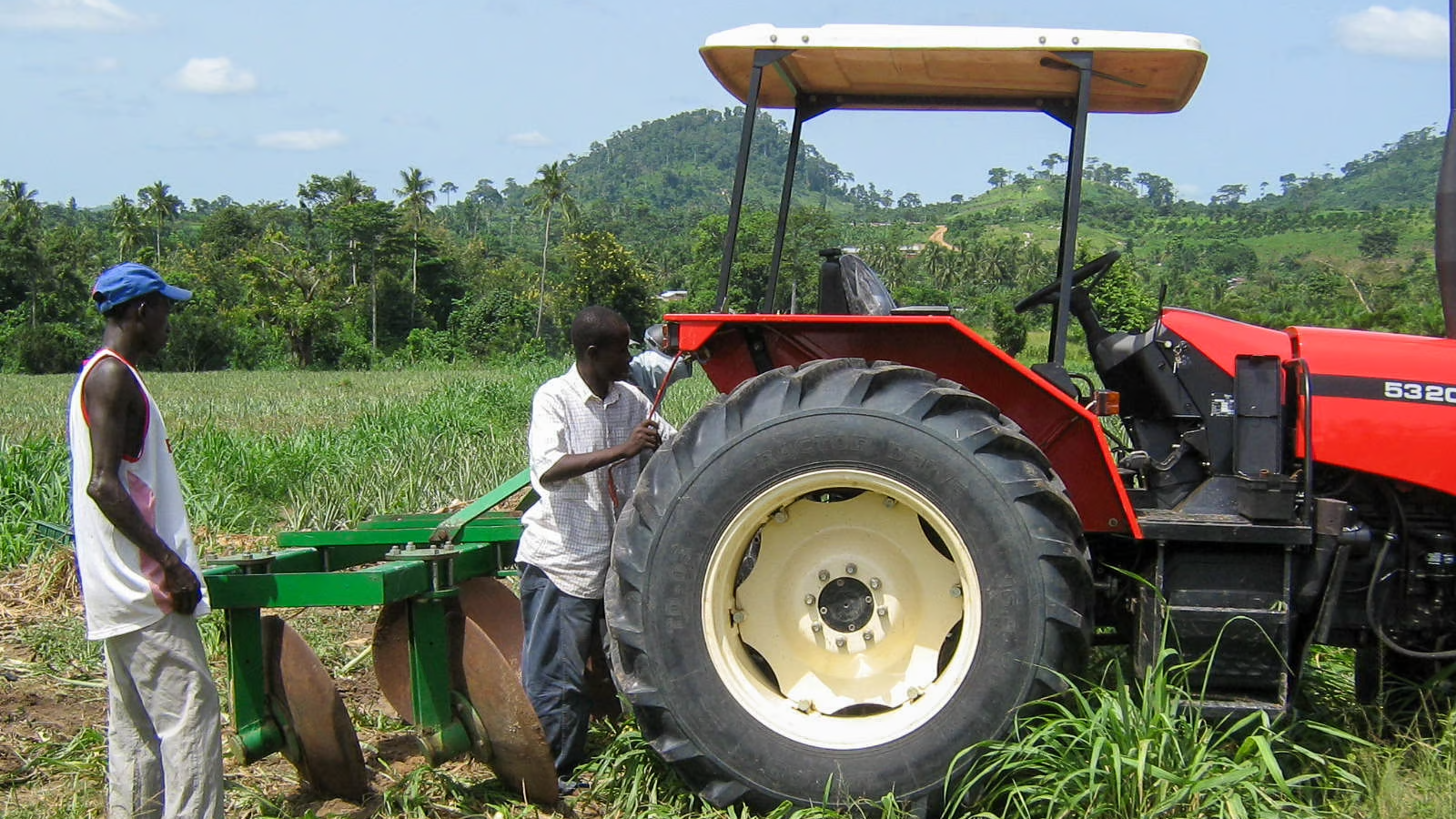
Making a Difference: How farmers in Ghana benefit from the Agricultural Mechanization Services Enterprise Centers Program
Making tractors accessible and affordable to smallholders.
-
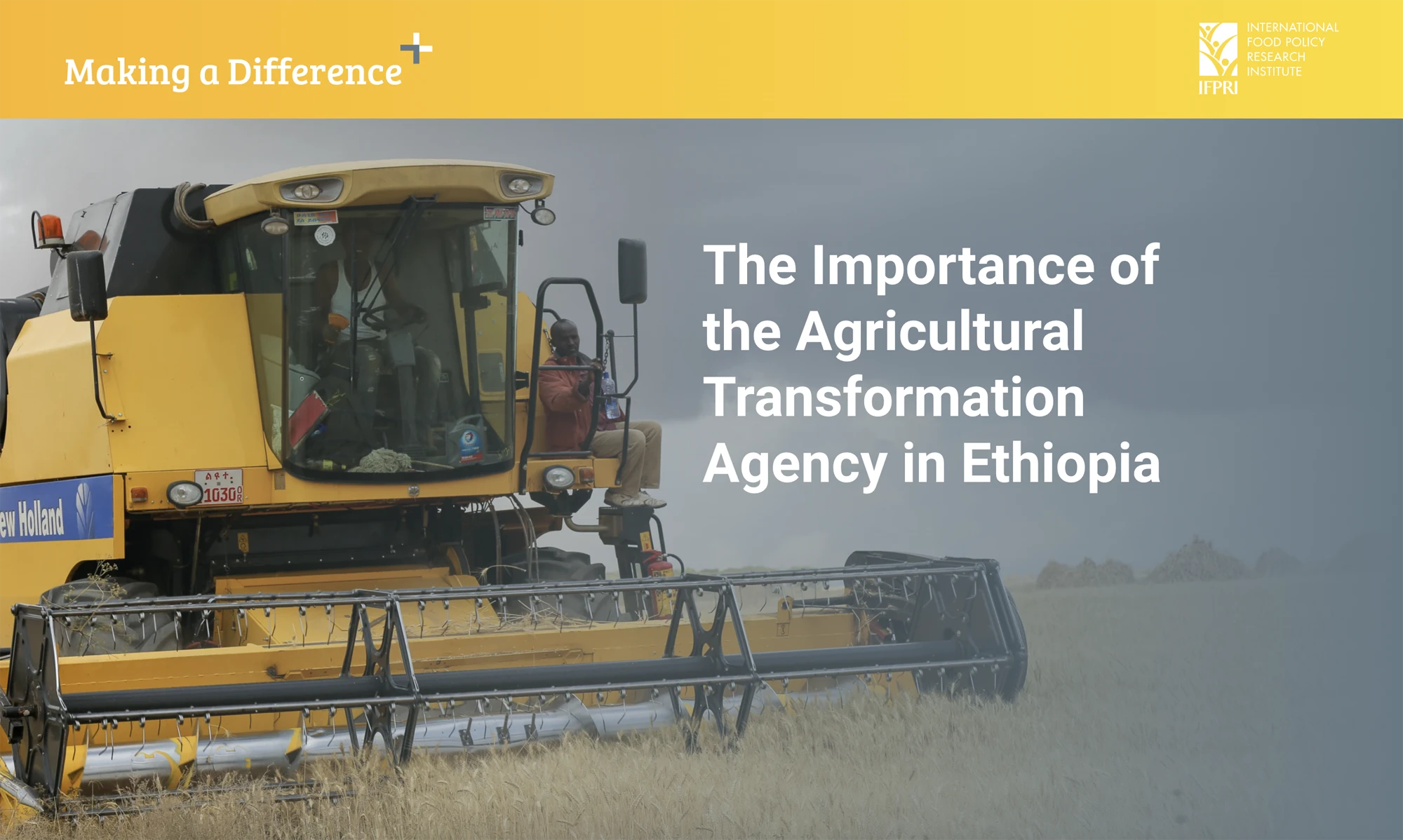
The importance of the agricultural transformation agency in Ethiopia
IFPRI’s work in catalyzing innovation.
-
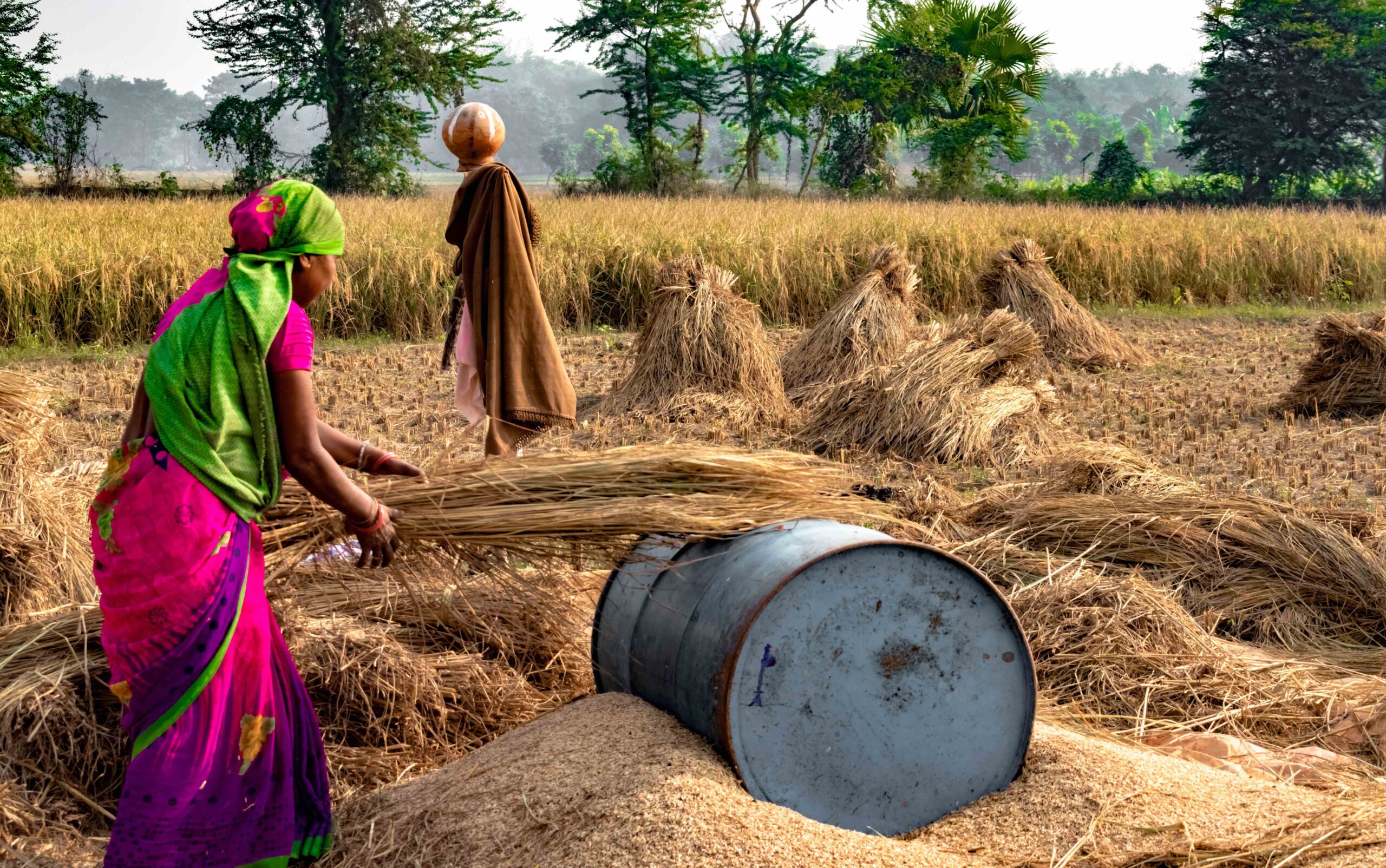
Shaping global agendas: The IFPRI Food Security Portal’s pathways to impact
Data tools provide key insights in a time of crisis.
Impact by the Numbers
For five decades, IFPRI’s research has informed policy decisions and investments made by governments, development organizations, and other partners around the world. Efforts to assess our impact highlight the economic, social, and environmental benefits of this work.
#1
IFPRI’s global ranking in agricultural economics, per the central index RePEc
46
gold-standard impact assessment reports produced
27
years of measuring institutional impact
300+
partner organizations with which IFPRI amplifies its impact
Today, thanks to IFPRI and other partners, we now know so much more about what needs to be done to improve agriculture, food security, and nutrition.
It was IFPRI that did so much work to make a visible, rigorous, and convincing case that we had to continue to invest in agriculture and food security.

IFPRI’s Approach to Impact
IFPRI creates impact by working with partners to shape policies, programs, interventions, and institutions in ways that catalyze lasting, significant, and measurable improvements to food system outcomes.

Making a Difference Blog Series
The Making a Difference blog series highlights the impact of select IFPRI projects and initiatives. The stories reflect the wide breadth of the Institute’s research, communications, and capacity-strengthening activities around the world, in fulfillment of our mission. The blog series is reviewed by IFPRI’s Impact Committee.
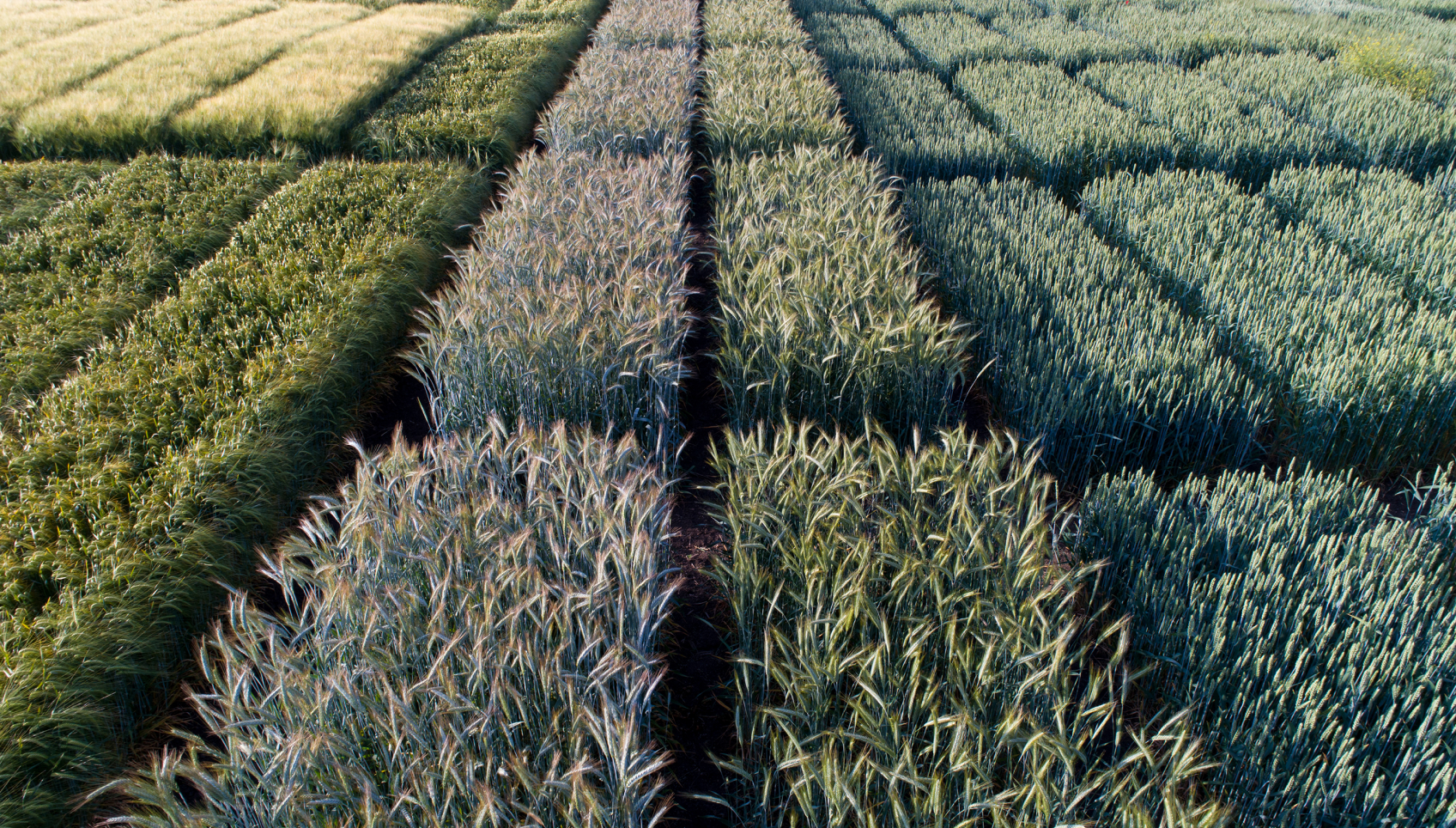
Impact Publications
IFPRI has been publishing assessments of our impact for many decades. We commission independent, peer-reviewed assessment reports of the Institute’s impact within specific research themes, countries, or regions. These reports assess IFPRI’s impact, but also outline conceptual and methodological approaches used to determine impacts, which vary across topics and contexts. Our other impact publications include impact briefs, the IFPRI Making a Difference brochure, and funder- and country-specific brochures. All of these publications are peer reviewed. Together, they reflect years of research, collaboration with hundreds of national and local partners, and cutting-edge innovation on food systems issues.
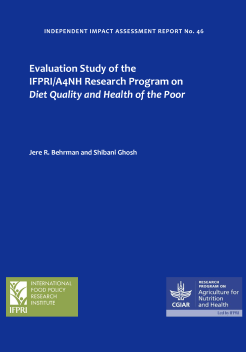
Report
Evaluation study of the IFPRI/A4NH research program on diet quality and health of the poor
2019Behrman, Jere R.; Ghosh, ShibaniIFPRI’s Poverty, Health, and Nutrition Division (PHND) and the CGIAR Research Program on Agriculture for Nutrition and Health (A4NH) have conducted research since 2003 on the critical links between nutrition, health, and agriculture. This evaluation considers the impact of the work carried out through 2016, looking at the research strategy, engagement, capacity building, and impact on programs and policies and global dialogue.



